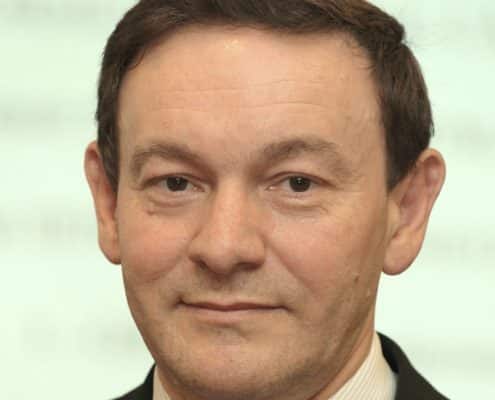Nuno Fernandes
Professor Catedrático de Finanças no IESE Business School, em Espanha. Presidente do Conselho de Auditoria do Banco de Portugal e Membro (não-executivo) do Conselho de Auditoria do Banco Europeu de Investimentos (BEI).
At the start of the summer tourism season, the German government agreed to a €9 billion COVID-19 lifeline for Lufthansa as other state bailouts of airlines came to the aid of Hong Kong’s Cathay Pacific (€5 billion), the Dutch carrier KLM (€3.4 billion), and the Portuguese TAP (€1.2 billion). American airline workers, meanwhile, asked for $32 billion in federal assistance on top of April´s $25 billion package.
These government interventions in the airline industry arrived earlier this year, as more than 95% of the aviation fleet was grounded worldwide. Now, despite a brief uptick from the depths of the crisis, air traffic remains down by 50% to 70% in Europe and the US. No significant tourism rebound is expected, under the best circumstances, until 2021.
The Hidden Risks of Government Subsidies
These government interventions in the airline industry arrived earlier this year, as more than 95% of the aviation fleet was grounded worldwide. Now, despite a brief uptick from the depths of the crisis, air traffic remains down by 50% to 70% in Europe and the US. No significant tourism rebound is expected, under the best circumstances, until 2021.
State bailouts of airlines may seem justified given these bleak conditions. Yet the coronavirus has battered an array of industries.
With that in mind, here are three precautions government and economic leaders should consider when coming to the aid of ailing sectors.
1. Zoom Out for the Big Picture
The enormity of the damage should convince finance ministers to look at their national airlines without ignoring the broader international context. Opting instead for ad-hoc bailouts for specific industries risks an asymmetric response favoring politically-connected companies.
To keep those connections in check, governments should receive something in return for their capital injections that’s independently assessed and does not contain hidden privileges for dominant players.
Regarding the subject of unequal government responses to economic carnage, consider the magnitude of the damage.
Hotels, restaurants, cinemas, sports arenas and cultural venues call continue to face grave uncertainty. Just as the airline business subsists on packing people onto planes, all of these sectors’ viability relies on bringing crowds into confined spaces. And many people might avoid crowded places even after the crisis subsists.
These ailing sectors have shed millions of jobs around the world. And given the persistently grim global evolution of the virus in several regions—and the prospect of cold weather surges—many more will be lost. It’s not just whole industries that are suffering. Creditors have enormous stakes in these corners of the economy.
2. Consider symmetry
In a perfect world, governments could address such deep, broad economic pain with equality in mind, and without consequences. Unfortunately, the reality is far from perfect.
Proposals for governments to buy the middle seats of airplanes, for instance, would help steady airlines in this crisis and provide a bulwark of guaranteed revenues. However, this action could logically extend to governments paying for 50% of restaurant seats that many local governments have mandated stay empty so as to ensure social distancing.
They might also be expected to pay for seven out of eight cinema tickets, given that in light of current capacity restrictions, movie theaters won’t be able to fill many more than one or two out of eight seats.
3. Foresee the Future
Milton Friedman famously said that there are no free lunches. If the government is to subsidize any of these sectors, the money won’t materialize out of thin air. And there are consequences and trade-offs involved in sourcing that money.
Among them is the intergenerational conflict that increasing long-term debt in the name of short-term spending creates. The young people of today, who studies show have been particularly shellacked economically by the pandemic, will eventually have to pay off these debts.
Another risk of this kind of intervention involves imprecise valuations. Take the example of Lufthansa. When all is said and done, the government will own 20% of the company. That could represent a significant reward once the economy recovers, travel presumably returns to something approaching normal, and if Berlin can sell its position at a profit.
Yet take a closer look and it appears that the German government is paying much more than it can expect to receive in exchange. Lufthansa´s real market capitalization prior to this deal was substantially below €15 billion (the value implied by the 20% deal at a price tag of the deal’s €3 billion direct capital infusion). The German government is paying more than other shareholders for each piece of the company, which represents a disguised implied subsidy at the expense of German taxpayers.
This is far from an isolated example of hidden subsidies that impede governments from administering fair and consistent bailouts.
Policy makers, including those on the European Commission, must evaluate the merits of each deal and act prudently, with fairness in mind.












